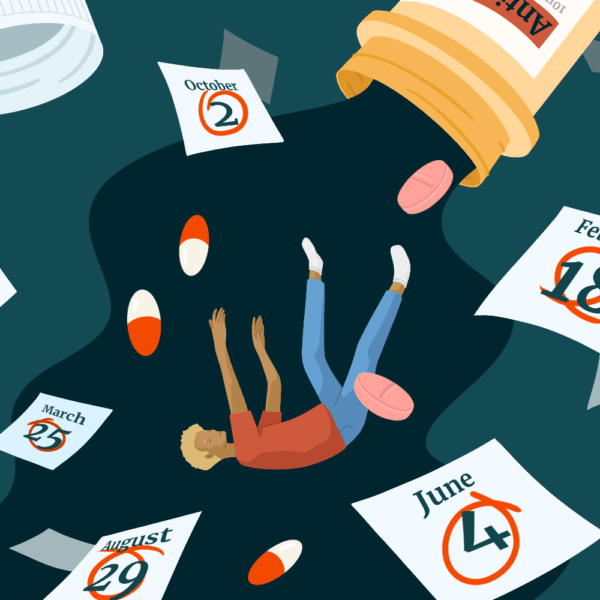
Whether you went to see your doctor for a regular check-up or had to go to the emergency room because you broke your wrist, you probably received a bill for it. But do you know what happens before that bill reaches you?
No? That is okay. Many people do not understand how medical bills work. Looking at medical claims from your doctor’s office can be confusing. But do not worry, we will explain everything you need to know – from the different types of bills to how they are sent and everything in between.
What’s a medical claim?
A medical claim is like a bill from your doctor’s office that they or a medical billing service provider send to your health insurance company after you’ve been treated. It lists special codes that describe what care you got, so your insurance knows how to pay for it quickly.
Different types of claims
There are a few kinds of claims depending on what kind of care you had and what insurance you have:
Medical claims
These are bills from your doctor’s office, urgent care, hospital, or other places where you got medical help.
Dental claims
These are bills from your dentist or orthodontist that they send to your health insurance.
Pharmacy claims
These are bills from the pharmacy for the medicines you bought. Sometimes, you might get a pharmacy and medical claims for the same visit if you need medicine while getting other care, like in the hospital.
Claims for Your Health Expenses
If you have a special account like a flexible spending account (FSA) or health reimbursement account (HRA), you can get some money back when you pay for doctor visits or prescriptions. You send the bills to the company that manages your FSA or HRA.
How Medical Claims are Created?
If you go to a doctor in your insurance plan’s network, the doctor’s office sends you the bill. You don’t have to do anything.
When to Send Bills for Services Outside Your Network
To ensure your bills are paid quickly, it’s best to send them in as soon as you can. Most insurance companies give you about three months after you get care to send in your bills.
How Healthcare Claim Processes?
First, you fill out a form with your info and insurance details when you visit the doctor.
The doctor’s office checks your insurance info.
You get your treatment, and the doctor writes down what they did, what you talked about, and any medicine they gave you.
The doctor’s notes get turned into codes that describe what happened and why.
A billing person at the doctor’s office enters the prices for each code onto a form for your insurance company, which tells them how much your treatment costs.
The claim form goes from your doctor’s office to your insurance company, usually by computer. How often they send claims can affect how fast you get paid.
Your insurance company checks the codes to ensure they are correct and compares them to your plan to see what it covers. If there are mistakes, they might ask the doctor’s office about them.
Your insurance pays part of the bill and tells the doctor’s office what you still have to pay.
You might get a letter from your insurance explaining how they paid and what you still owe. Then, you will get a bill from the doctor’s office for what you must pay. You pay that to the doctor’s office directly.
How long does it take for confirmation?
Health insurance companies must tell you if they will pay your medical bill within 30 business days of receiving it. But sometimes, if the bill is missing important details, like the correct codes, or there are mistakes, it might take longer to process.
Understanding Your Medical Bill and Explanation of Benefits (EOB)
When you get a bill from your doctor or hospital and a document called Explanation of Benefits (EOB) from your insurance company, it might look a bit confusing. But do not worry, here are some important things to look for:
- Total service cost: This is the amount the doctor or hospital charges for the care you receive. If you don’t have insurance, you’d have to pay this amount.
- Plan paid: This shows how much your insurance company paid for your care. It can change depending on what kind of care you get and whether you have already paid some money towards your deductible or out-of-pocket limit.
- My responsibility: You need to pay this amount. Your doctor or hospital will send you a bill for it.
Why a medical claim number is important
Every time you visit the doctor or hospital, they give your visit a special number. This number helps them keep track of your visit. So, if you talk to someone at the clinic or your insurance company about your visit, mentioning this number helps them understand which visit you are talking about. It makes things easier for everyone.
What if your claim is denied
If your insurance company decides it won’t pay for something related to your medical visit, it will tell you. You will get a paper called “Explanation of Benefits” that explains why they are not paying. There could be a few reasons for this. Maybe your insurance does not cover the specific care you got, or maybe it was from a place they do not work with. Sometimes, they might just need more information to decide, like details about other insurance you have.











